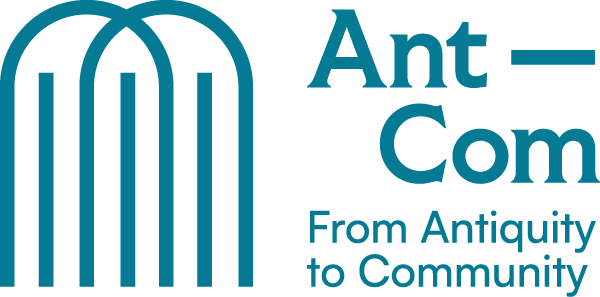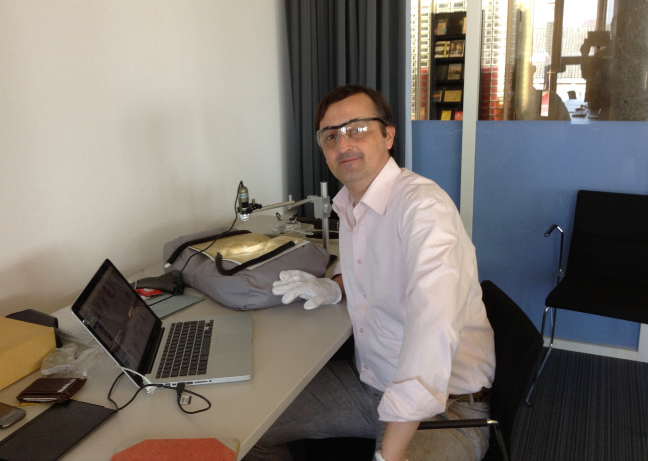The doctoral students who will study Greek marginalia and palimpsests in Verona will owe their (hopefully positive) experience to a series of unpredictable events in the professional life of yours truly.
My interest in commentaries on the texts of classical Greek literature dates back to my Master’s thesis, in which I worked on Heliodorus’ esoteric metrical scholia to Aristophanes’ comedies. It is therefore no coincidence that when I started my doctorate, I was proposed to work on the scholia of my favorite author, Sophocles. I never regretted the choice: to this day I can still say that every time I delved into the relationship between an ancient commentary and the commented text, I was able to better understand the latter, even through unpredictable paths. Every single time.
But what led me from the study of ‘paraliterature’ to palimpsests? It took, of course, a palimpsest. And Sophocles. The lucky combination came true in codex BPG 60/A housed in the University Library of Leiden (Netherlands), the oldest medieval manuscript of Sophocles, closely related to a twin in the Medicea Laurenziana. It was the spring of 2012 and my goal was to study … the scholia on Antigone. I still remember when, armed with a bulky Wood’s lamp, I tried to decipher the manuscript in daylight. I could not read anything. The kind library staff then provided me with a darkened (and cold) room for my work, and there I had a few moments of philological exaltation (yes, they do happen) in which I realized how much work there was to be done on the text of the tragedies in the palimpsest. Gradually, and usually in the summer when my commitments in Verona permitted, I proceeded to slowly read, word by word, page by page, the entire set of Sophocles’ tragedies, assisted in the last expeditions by a digital microscope.
In August 2021 I finished the work that now awaits the final touch of multi- and hyperspectral imaging. In 2012 this was a very expensive type of analysis; today it is possible with lower costs, and in Verona it is made accessible thanks to the LaMeDan university laboratory: I did not have to go far! Yet there is still one link missing from the series of unpredictable events that brought me to a magical place close to my office on the banks of the Adige River, namely the Biblioteca Capitolare. This link is my friend Aglae Pizzone, whom I met in…, well let’s say ‘a few’ years ago during a papyrology seminar in Syracuse (Sicily) and whom, as happens in life, I lost touch with for too long. Eventually we met again at the reception desk of the Special Collections in … Leiden! Aglae was making an important discovery about a manuscript of Hermogenes revised by the great philologist John Tzetzes; I was there, it goes without saying, for Sophocles. Those who know Aglae know that it is hard to escape her volcanic ability to organize projects and to think in terms of ‘team’: I, too, was captured when she launched the idea of AntCom, in which we seek to return some cultural treasures to their host community along a path that touches on several disciplines, including Citizen Science. What could I bring as a contribute but marginalia and Greek palimpsests? The amazing Biblioteca Capitolare of Verona had both and the rest is history … indeed it is future: the future that will be shaped by us and, above all, by you, dear future doctoral students. We look forward to welcoming you!

